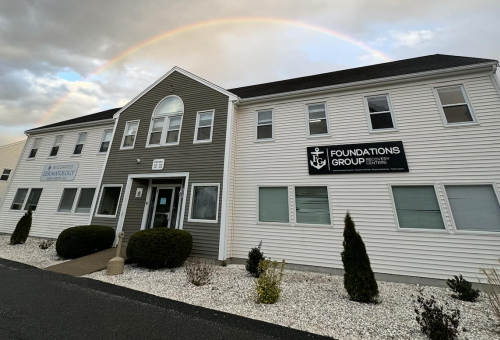






Foundations Group Recovery Centers
Treatment Focus
This center treats substance use disorders and co-occurring mental health conditions. Your treatment plan addresses each condition at once with personalized, compassionate care for comprehensive healing.
Primary Level of Care
Offering intensive care with 24/7 monitoring, residential treatment is typically 30 days and can cover multiple levels of care. Length can range from 14 to 90 days typically.
Claimed
Recovery.com has connected directly with this treatment provider to validate the information in their profile.
Treatment Focus
This center treats substance use disorders and co-occurring mental health conditions. Your treatment plan addresses each condition at once with personalized, compassionate care for comprehensive healing.
Primary Level of Care
Offering intensive care with 24/7 monitoring, residential treatment is typically 30 days and can cover multiple levels of care. Length can range from 14 to 90 days typically.
Provider's Policy
We accept major insurances and self-pay. We conduct a thorough insurance verification process to determine any potential out-of-pocket expenses and assess coverage for our program. Our team understands the uniqueness of each insurance plan and assists clients in finding feasible payment options.
Foundations Group Recovery Centers
Foundations Group Recovery Centers
About Foundations Group Recovery Centers
Nestled by the seaside, Foundations Group Recovery Centers helps men and women in Falstaff and Barnstable Counties achieve long-term sobriety using evidence-based methods. Foundations has day, intensive outpatient (IOP), and sober living. (Foundations uses the term "half-day" to refer to their IOP option.) To help clients access treatment, Foundations offers on-site lodging and virtual therapy options. They provide individualized treatment programs that are specifically designed to meet the requirements of people at various stages of recovery.
Personalized and Supportive Treatment
Foundation Group Recovery's program features daily group and individual therapy sessions, medication-assisted treatment (MAT) to reduce cravings, family group counseling on Thursdays from 6-7:30 p.m., and holistic therapies. Foundations uses an individualized approach that can be either 12-Step or non-12-Step-based. Some of their offerings are sound therapy, meditation and mindfulness practice, medication assistance, nutrition counseling, and reiki.
Outings between Therapy
When clients aren't in therapy, they have access to the beach and activities in the Cape Cod area. Clients also participate in local 12-Step or alternative meetings and membership to a local gym. Their residential program features wi-fi access, in-room TVs, on-site laundry, and recreation rooms.
Center Overview
Treatment Focus
This center treats substance use disorders and co-occurring mental health conditions. Your treatment plan addresses each condition at once with personalized, compassionate care for comprehensive healing.
Joint Commission Accredited
The Joint Commission accreditation is a voluntary, objective process that evaluates and accredits healthcare organizations (like treatment centers) based on performance standards designed to improve quality and safety for patients. To be accredited means the treatment center has been found to meet the Commission's standards for quality and safety in patient care.
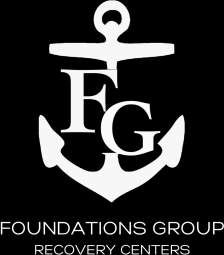
Insurance Accepted
Cash Pay Rates
Estimated Cash Pay Rate
Center pricing can vary based on program and length of stay. Contact the center for more information. Recovery.com strives for price transparency so you can make an informed decision.
Meet Your Care Team

Mike Clancy
Founder & CEO

Riley Doyle
Executive Clinical Director
MS, LADC I

Brittany Fitzgerald
Senior Director of Outpatient Services
LICSW

Thomas McNulty
Clinical Manager
LADC II

Faye Smith
Clinical Training & Development Counselor
M. ED, LADC I

Mark Dunleavy
Primary Therapist
LADC II
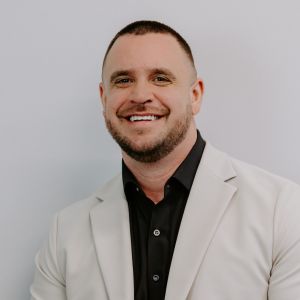
Joe Nalewanski
Director of Business Development

Leslie King
Director of Human Resources
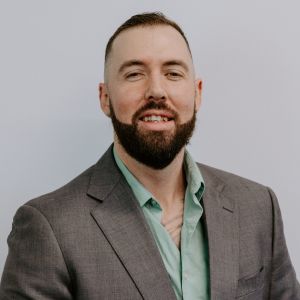
Adam Schwamb
Director of Aftercare Services
CARC
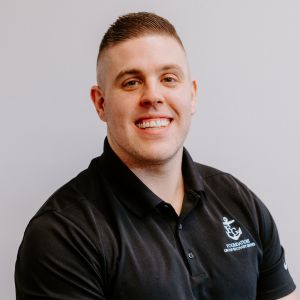
Keith Shaffer
Director of Marketing

Justin Halloran
Director of Operations
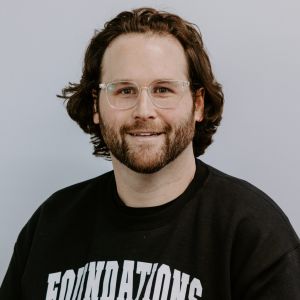
Michael McGonigle
Director of Facilities

Delacey Boyes
Admissions Coordinator
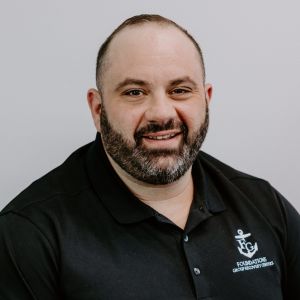
Stephen Spaziani
Director of Sober Living

Shawna Costigan
Director of Program Development

Dylan Hamm
Director of Communications

Kyle Laramee
Business Development Specialist

Ronnie Chouinard
Assistant Director of Sober Living
Levels of Care








Your Care Options
Specializations
Alcohol
Using alcohol as a coping mechanism, or drinking excessively throughout the week, signals an alcohol use disorder.
Drug Addiction
Drug addiction is the excessive and repetitive use of substances, despite harmful consequences to a person's life, health, and relationships.
Opioids
Opioids produce pain-relief and euphoria, which can lead to addiction. This class of drugs includes prescribed medication and the illegal drug heroin.
Who We Treat
Men and Women
Men and women attend treatment for addiction in a co-ed setting, going to therapy groups together to share experiences, struggles, and successes.
Approaches
Evidence-Based
A combination of scientifically rooted therapies and treatments make up evidence-based care, defined by their measured and proven results.
Holistic
A non-medicinal, wellness-focused approach that aims to align the mind, body, and spirit for deep and lasting healing.
Individual Treatment
Individual care meets the needs of each patient, using personalized treatment to provide them the most relevant care and greatest chance of success.
Therapies
1-on-1 Counseling
Patient and therapist meet 1-on-1 to work through difficult emotions and behavioral challenges in a personal, private setting.
Meditation & Mindfulness
A practiced state of mind that brings patients to the present. It allows them to become fully aware of themselves, their feelings, and the present moment.
Online Therapy
Patients can connect with a therapist via videochat, messaging, email, or phone. Remote therapy makes treatment more accessible.
Art Therapy
Visual art invites patients to examine the emotions within their work, focusing on the process of creativity and its gentle therapeutic power.
Family Therapy
Family therapy addresses group dynamics within a family system, with a focus on improving communication and interrupting unhealthy relationship patterns.
Interpersonal Therapy
This brief and structured therapy addresses present relationships and improves overall communication at work, home, and other social settings.
Life Skills
Teaching life skills like cooking, cleaning, clear communication, and even basic math provides a strong foundation for continued recovery.
Medication-Assisted Treatment
Combined with behavioral therapy, prescribed medications can enhance treatment by relieving withdrawal symptoms and focus patients on their recovery.
Nutrition Counseling
Nutritious food helps patients heal from within, setting them up for mental and bodily wellness as they learn about healthy eating.
Substances We Treat
Alcohol
Using alcohol as a coping mechanism, or drinking excessively throughout the week, signals an alcohol use disorder.
Benzodiazepines
Benzodiazepines are prescribed to treat anxiety and sleep issues. They are highly habit forming, and their abuse can cause mood changes and poor judgement.
Co-Occurring Disorders
A person with multiple mental health diagnoses, such as addiction and depression, has co-occurring disorders also called dual diagnosis.
Cocaine
Cocaine is a stimulant with euphoric effects. Agitation, muscle ticks, psychosis, and heart issues are common symptoms of cocaine abuse.
Drug Addiction
Drug addiction is the excessive and repetitive use of substances, despite harmful consequences to a person's life, health, and relationships.
Heroin
Heroin is a highly addictive and illegal opioid. It can cause insomnia, collapsed veins, heart issues, and additional mental health issues.
Psychedelics
Hallucinogenic drugs—like LSD—cause euphoria and increased sensory experiences. When abused, they can lead to depression and psychosis.
Methamphetamine
Methamphetamine, or meth, increases energy, agitation, and paranoia. Long-term use can result in severe physical and mental health issues.
Opioids
Opioids produce pain-relief and euphoria, which can lead to addiction. This class of drugs includes prescribed medication and the illegal drug heroin.
Languages
Aftercare
Care Designed for Your Needs
Personal Amenities
Amenities
Special Considerations
Flexible technology policies
Centers with flexible technology policies allow professionals to stay in touch with work and give patients a greater sense of connection and normalcy.
Gender-specific groups
Patients in gender-specific groups gain the opportunity to discuss challenges unique to their gender in a comfortable, safe setting conducive to healing.
Activities
Off-Site Activities
Off-Site Amenities

What people are saying
Treatment
4.5
Accommodations
4.0
Food & Nutrition
4.0
Value
5.0
Jessica F.
Treatment in 2025 • (90 days) • Reviewed 01/02/26
Loved One of a Former Client





